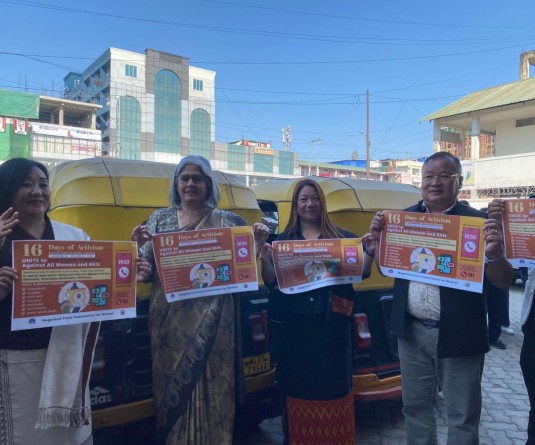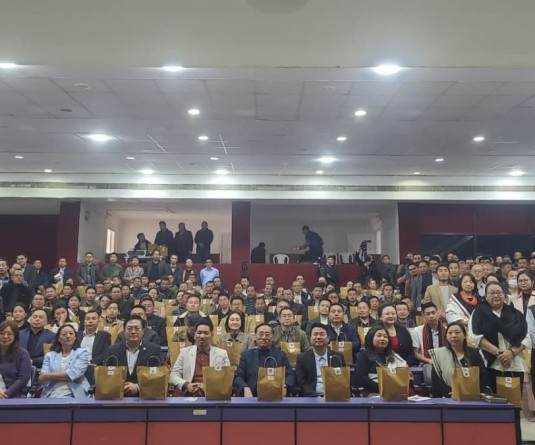
Mokokchung, July 20 (MExN): A Human-Animal Conflict Mitigation Campaign was jointly organised in Mokokchung on July 20 by the Nagaland Forest Department and the Fingerprint and Castle group and sponsored by the Ministry of Environment, Forest & Climate Change, Government of India, New Delhi.
It was organised at Metsuben Conference Hall with participation of 50 persons from Forest Department, District Administration/Police and people from the three villages viz, Aliba, Mangmetong and Kinunger. In his address, I. Panger Jamir, PCCF & HoFF Nagaland, said that ‘elephant problem’ is a challenge not only to the Forest Department but for the State as well and the State should take up this problem as a disaster and the villagers should be compensated through State Disaster Management Fund. He also stated that Mokokchung and Longleng districts are vulnerable to climate change which is mainly due to Jhum cultivation and other biotic factors.
Satya Prakash Tripathi, Chief Wildlife Warden, in his keynote address stated the genesis of human-animal conflict, policy of the Government of India and the State Government of Nagaland in addressing this issue and its possible mitigation. He appealed to people to protect wildlife for our existence.
In her welcome address, K. Caroline, Wildlife Warden Dimapur gave a brief background for organising the campaign and stated that the survival of human beings is totally dependent on the survival of plants and wild animals. In his address, TN, Jamir, DFO Mokokchung appealed to villagers, individuals and communities, to be proactive and come forward for protection of forest with wild animals for sustainable forest management and survival of future generation.
A press release added that during interactive sessions, the villagers asked the policy of the Government regarding compensation against damage of crops by wild elephants and the ways how to co-exist with wild elephants. This was responded by the Chief Wildlife Warden, Nagaland.
Zunheboto: Human-Animal Conflict Mitigation awareness campaign programme was organized on July 19 at the DC Hall, Zunheboto with participation from people affected by human-animal conflict (VK, Akuluto Area), District Administration and Forest Department.
In his address, Temjenyapang, IFS, Conservator of Forest (Publicity and Training) spoke on the need to preserve every component so that we may live in a wholesome environment with particular reference to Community Conservation Areas (CCAs) and the challenge posed towards integration of all CCAs to create bio-corridors for movement of fauna.
SP Tripathi, Chief Wildlife Warden, Nagaland in the keynote address stated that survival of human being was dependant on the survival of plants and animals. He gave a brief background of the genesis of human-animal conflict and the probable solutions. He also stated the policies of government of India and the government of Nagaland for addressing the human-animal conflict.
The DFO highlighted different aspects of human-animal conflict within the state stressing on the need towards understanding animal behaviour. He also appealed for a holistic approach when developmental activities are carried out so that animal habitats are not fragmented further.
A press release added that Sumi Hoho, Vice President, Khehoshe spoke on the occasion rendering full support on issues related to conservation of environment and wildlife.
Participants deliberated on ongoing issues which the Chief Wildlife Warden addressed.






